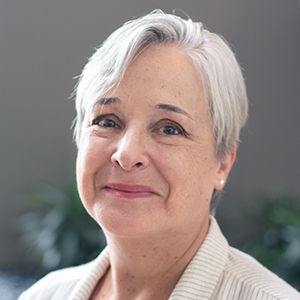Magazine life
After more than two years of procrastinating, I got a library card last month, and one of the first books I checked out was Ruth Reichl’s “Save Me the Plums.” In case that name doesn’t ring a bell, Reichl has been the food editor at the LA Times, restaurant critic for The New York Times and editor of Gourmet magazine. Quite the dream career for anyone who likes food.
Reichl also has written several autobiographical bestsellers, and this latest is about her stint at Gourmet. Because I too am a magazine editor (admittedly on a vastly different scale), I take a particular interest in her detailed descriptions of the job, complete with quirky coworkers and mystifying jargon. Coincidentally, years ago, I edited a short-lived magazine that died because we didn’t sell enough ads — so I feel a sad bond reading about Gourmet’s demise in 2009.
For most of its 69 years, Gourmet was a specialized publication, what some would call a niche product, tightly focused on recipes and restaurants (with a smattering of travel). My grandmother sent me a gift subscription for a decade or so, pre-Reichl, and I loved that escapist quality. It was stodgy but soothing.
Under Reichl’s leadership, Gourmet came out of its luxe-life bubble, running articles about the horrors of fish farms or how the food industry tried to sabotage a scientist who linked trans fats to cancer. There were still recipes with caviar, but there were also sloppy joes. The reality of food, in all its complexity, turned out to be much more interesting than the airbrushed fantasy.
And (to bring this back home), I think that’s where magazines belong. Perched between the first-draft-of-history breathlessness of newspapers and the weightiness of books, a good magazine can use its theme (food, fashion, woodworking, biochemistry) as a prism for viewing the complexities of the world that theme inhabits.
So as much as I love running stories about amazing science, I have a special fondness for stories about issues: sexual harassment, faculty diversity — or John Arnst’s article this month about accommodations for scientists with mental illness. Both kinds of stories really need to run in tandem. If we don’t make sure that students and early-career researchers have what they need to succeed — be it time off for therapy appointments, noise-canceling headphones or a dog to raise oxytocin levels — we will never see their potentially amazing science.
And, cheesy as it sounds, the more we understand the challenges in our world, the better our chance of making it better.
Enjoy reading ASBMB Today?
Become a member to receive the print edition four times a year and the digital edition monthly.
Learn moreGet the latest from ASBMB Today
Enter your email address, and we’ll send you a weekly email with recent articles, interviews and more.
Latest in Opinions
Opinions highlights or most popular articles

Women’s health cannot leave rare diseases behind
A physician living with lymphangioleiomyomatosis and a basic scientist explain why patient-driven, trial-ready research is essential to turning momentum into meaningful progress.

Making my spicy brain work for me
Researcher Reid Blanchett reflects on her journey navigating mental health struggles through graduate school. She found a new path in bioinformatics, proving that science can be flexible, forgiving and full of second chances.

The tortoise wins: How slowing down saved my Ph.D.
Graduate student Amy Bounds reflects on how slowing down in the lab not only improved her relationship with work but also made her a more productive scientist.

How pediatric cataracts shaped my scientific journey
Undergraduate student Grace Jones shares how she transformed her childhood cataract diagnosis into a scientific purpose. She explores how biochemistry can bring a clearer vision to others, and how personal history can shape discovery.

Debugging my code and teaching with ChatGPT
AI tools like ChatGPT have changed the way an assistant professor teaches and does research. But, he asserts that real growth still comes from struggle, and educators must help students use AI wisely — as scaffolds, not shortcuts.

AI in the lab: The power of smarter questions
An assistant professor discusses AI's evolution from a buzzword to a trusted research partner. It helps streamline reviews, troubleshoot code, save time and spark ideas, but its success relies on combining AI with expertise and critical thinking.

